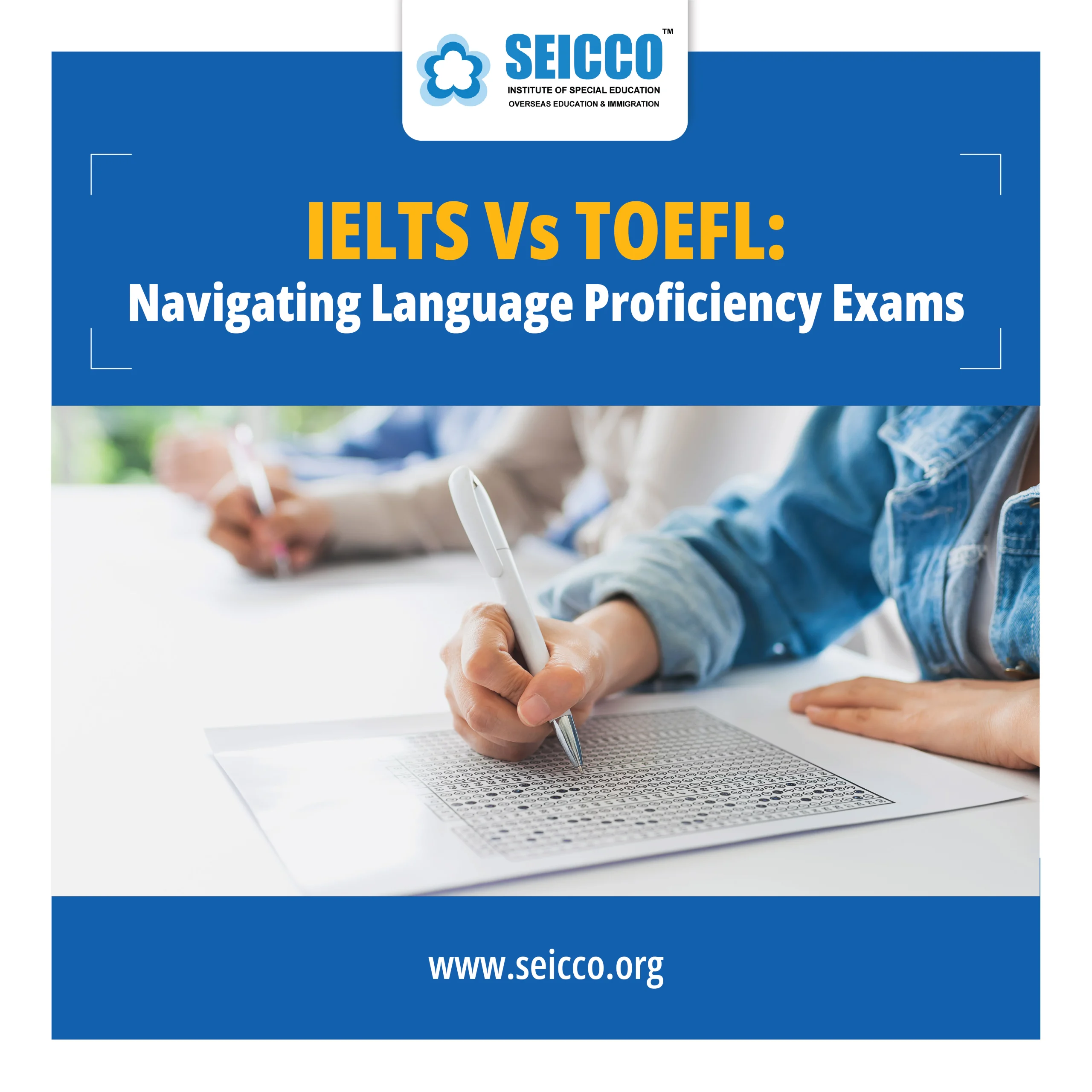Introduction:
Language proficiency exams play a pivotal role in shaping the academic and professional journeys of individuals aiming to study or work in English-speaking countries. Two widely recognized assessments, The International English Language Testing System (IELTS) and the Test of English as a Foreign Language (TOEFL), often prompt candidates to ponder a crucial question: Is IELTS easier than TOEFL? In this exploration, we will dissect the disparities between the two exams through a simplified table and delve into the nuances to guide you in making an informed decision.
IELTS vs TOEFL: The Comparison
| Aspect | IELTS | TOEFL |
| Sections | Listening, Reading, Writing, Speaking | Reading, Listening, Speaking, Writing |
| Scoring | Bands from 1 to 9, with half-band increments | Total scores out of 120 |
| Test Format | Paper-based or Computer-based (face-to-face Speaking) | Internet-based (TOEFL iBT) or Paper-based |
| Speaking Section | Face-to-face interview with an examiner | Recorded responses to integrated tasks |
| Acceptance | Globally accepted for academic and general purposes | Preferred by U.S. institutions, especially for academics |
| Flexibility | Choice between paper-based and computer-based tests | Primarily internet-based (TOEFL iBT) |
In-Depth Analysis: IELTS
Flexibility in Test Format:
IELTS provides candidates with the flexibility to choose between paper-based and computer-based tests, accommodating different preferences.
Real-life Communication in Speaking:
The face-to-face Speaking interview in IELTS closely simulates real-life communication scenarios, allowing candidates to showcase their conversational skills effectively.
Comprehensive Language Assessment:
IELTS stands out for its holistic evaluation, with separate sections for each language skill, offering a well-rounded assessment of proficiency.
In-Depth Analysis: TOEFL
Integrated Tasks:
TOEFL emphasizes integrated tasks across sections, evaluating the ability to use multiple language skills simultaneously, such as in the Speaking and Writing sections.
Digital Testing Experience:
The internet-based format of TOEFL iBT aligns with the digital age, providing a testing experience familiar to today’s candidates.
Preference in U.S. Institutions:
TOEFL is traditionally more preferred by U.S. institutions, making it a suitable choice for candidates aiming for academic admissions in American universities.
Wrapping Up:
The choice between IELTS and TOEFL depends on individual preferences, strengths, and the specific requirements of the target institution. Both exams are reputable and widely accepted, with distinct characteristics catering to diverse preferences. Consider taking practice tests for both exams and reach out to your desired institutions to align your choice with their preferences. Armed with this knowledge, you can confidently embark on your language proficiency journey, knowing that your chosen exam aligns with your strengths and aspirations.







